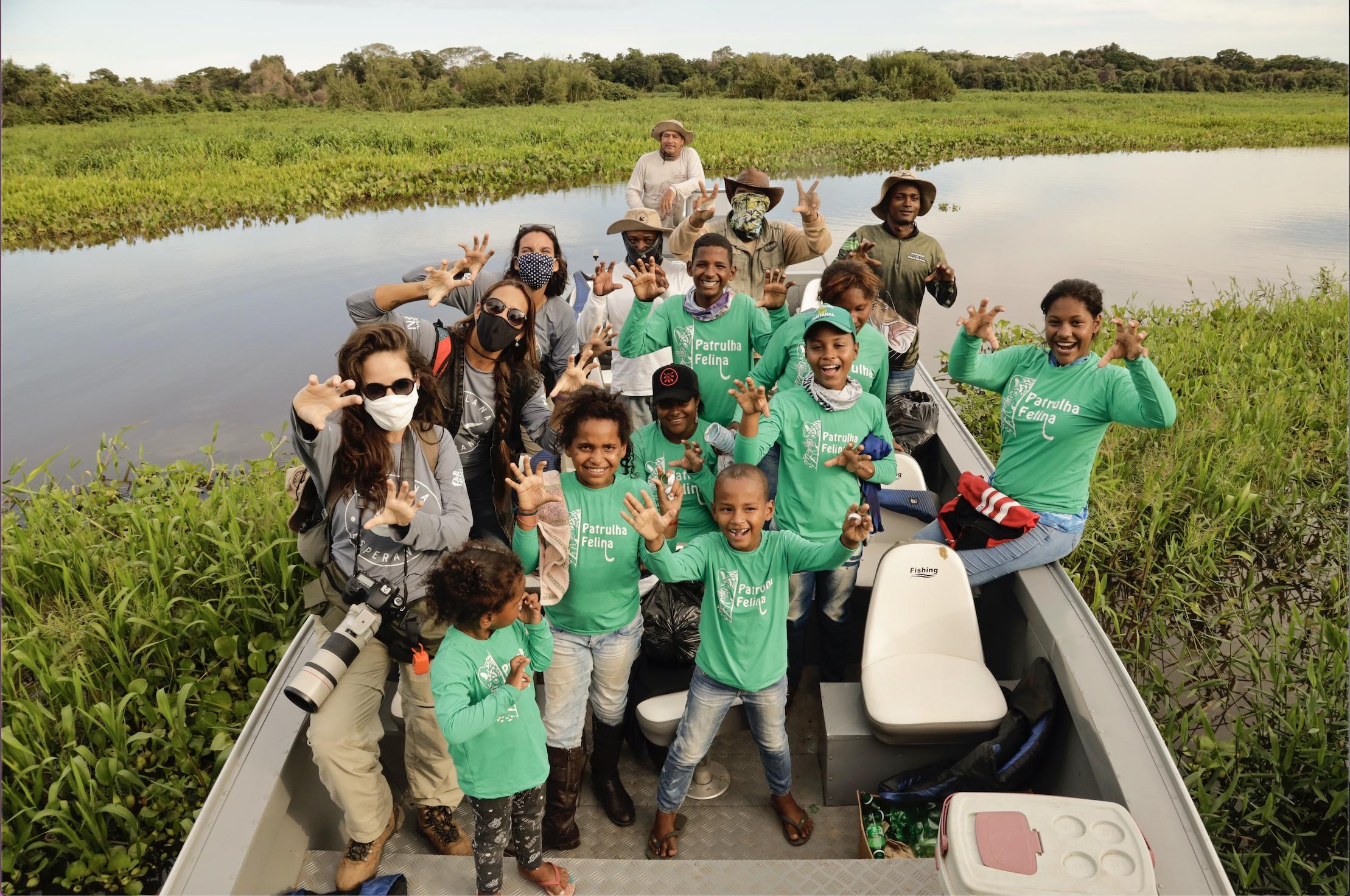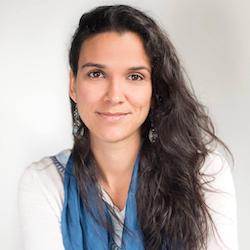
Project completed August 2023
Project Summary
The Project allowed for the expansion and improvement of Chalana Esperança's environmental education efforts in Northern and Southern Pantanal. Through theoretical workshops, field trips and the production and distribution of educational materials, the team prepared teachers from public schools to promote knowledge and care for the Pantanal with local communities.
Chalana Esperança's educators travelled to six municipalities, reached 49 schools, including indigenous, river-dwellers and quilombola schools, trained 413 teachers and, through them, educated thousands of children about the ecological relevance, biodiversity and threats to the Brazilian Pantanal.
The support of SCLA Fund allowed them to also bring 40 teachers and 60 students from the most vulnerable communities to experience the wonders of the Pantanal through boat trips conducted in protected areas in the most pristine areas of the Pantanal - places mostly visited by wealthy foreign tourists.
As their first big supporter, the SCLA Fund was been a game changer for the organisation, bringing the credibility and visibility needed for them to secure further funding.
Chalana Esperança also became a reference for environmental education in the region, recognised by different stakeholders working in the Pantanal, and have been invited to events, expeditions and meetings where they have been able to share their experiences and amplify their impact.
Activities
Key activities of the project included:
Workshop with teachers from public schools: encounters occurred in six municipalities of Northern and Southern Pantanal Poconé/MT, Barra do Garças/MS, Aragarças/GO, Corumbá/MS, Rio Verde/MS and Aquidauana/MS.
Development and distribution of educational materials: Chalana Esperança produced species mini guides to present to teachers and students some of the most emblematic and threatened animals of our fauna, divided by taxonomic groups. Over 3000 mini-guides which contained more than 15 individual booklets were distributed to teachers participating in the workshops. Schools from rural and more vulnerable areas were prioritised. Digital versions of the booklets were also made available along with supplementary material, such as didactic sequences for the development of activities in the classroom, and 100 copies of children's poem book "Fire in the Pantanal: the goddess of the rain is hurt", written by alumnus Luciana Leite, which tells the story of Amanaci, a jaguar who had her paws burnt in the 2020 fires.
Teacher field trip to experience the wonders of the Pantanal: as an additional activity, they worked with the Secretary of Education from Poconé-MT to allow 40 teachers to go to the field for an unforgettable experience.
Student field trip to experience the wonders of the Pantanal: the team took 60 children from different districts within Poconé on a boat trip with conservation biologists and educators to experience the heart of the Northern Pantanal in the vicinity of the State Park Encontro das Águas/MT.
Educational activities by Chalana Esperança's educational team with students: some participating schools asked the team to develop educational activities with students either to inspire teachers with games and different methodologies, or as part of special events on festive dates. In total, the educational team worked directly with 537 children from the Crescencio Abreu municipal school in Rio Verde/MS (220 children), from the rural municipal school Eutrópia Gomes Pedroso in Corumbá/MS (147 children) and from four riverside schools, namely Paraguai Mirim, Barra do São Lourenço, Aldeia Guatós e Jatobazinho (170 children).
Participation in the expedition by Brazilian Navy and other important events: as other stakeholders became aware of Chalana Esperança's work with environmental education in the Pantanal, they started to receive invitations to participate in different events to share experience and/or to bring some of their efforts to joint initiatives. One of the most emblematic ones was the participation in an expedition conducted by the Brazilian Navy to otherwise unreachable areas within the Pantanal where indigenous and riverside communities inhabit.
Chalana also participated in the first anniversary of the largest freshwater aquarium in the world, the BioParque Pantanal, located in Campo Grande/MS. In the event, we had an exhibition booth from which they could speak to children and adults visiting the aquarium.
Another important participation was of alumnus Luciana Leite as a speaker in the Congress Pontes Pantaneiras, an event with more than 600 registered participants, the first of its kind, held in Campo Grande, capital of Mato Grosso do Sul.
Conclusions and recommendations
- There is a huge appetite and need for educational efforts in the largest tropical wetland on Earth
- That Chalana are able to provide training and experiences to catalyse positive and meaningful change through multipliers within and outside the classroom of public schools.
Impacts
The biggest impacts from the project were:
- Reaching eight times more teachers than initially proposed.
- Tripling the number of children who directly participated in educational activities.
- Taking 40 teachers from the public school system in the state of Mato Grosso to experience the biome in a practical class in the field.
The team did not anticipate that the teachers would be so disconnected from the wildlife of the Pantanal. This increased the relevance of the project and the need to reach more communities and educators throughout the different regions of this wetland.
“I have always enjoyed life in the Pantanal, I had the privilege of living until I was a teenager in this pure and enchanting environment. Despite this, I have never had the privilege of seeing a jaguar up close and learning about its history and importance to nature before. Thanks to the Chalana project, I can now say that I am truly a Pantaneiro” - a comment from a local teacher about what the field trip experience meant to her
Outcomes and legacy
The most important outcome was demonstrating to other conservation organisations and local governments the need to invest in environmental education and community involvement in the protection of the biome. The high demand for workshops, the great number of teachers attending and the educational activities that followed these efforts showed that there is a great appetite and need to discuss biodiversity, ecological relevance and the current threats to the biome in formal and informal settings, across generations.
By spear-heading environmental education efforts combining classroom activities to field trips to highly touristic places that were otherwise unaffordable to most residents, Chalana provoked an important debate about inclusivity, community involvement and people's sense of belonging. Local hotels came forward to land their boats free of charge, minibus companies offered better prices, local producers made financial donations to cover part of the costs with gas for the boats and so on. Joint efforts between NGOs and producers in the Pantanal are extremely rare due to a political abyss created in recent elections in Brazil. Yet, they were able to overcome these differences and bring different stakeholders together.
Secondly, the theoretical workshop and field experiences were truly transformative to those that participated.
Finally, the strengthening of the project was an incommensurable institutional gain. The SCLA Fund allowed Chalana Esperança became a much more respected project, other donors have decided to support applications due to the "Cambridge project".
Follow up
An important follow-up from this project has been the funding provided by Acaia Pantanal and Documenta Pantanal to illustrate and publish five children's books and thematic memory games and puzzles to be distributed to public schools that participated in our workshops. The project is led by Dra Daniella França, educator Tainara Alencar and overseen by alumnus Luciana Leite and is already in its final stages of production.
Project lead
|
Luciana Leite (2013-14) Founder and general coordinator of Chalana Esperança Director of Engagement and Sustainability at Parque das Aves, Brazil I am a conservation biologist, CL alumnus and founder of Chalana Esperança. After graduating from Cambridge, I pursued a PhD in Forest Ecosystems and Society at Oregon State University. In my thesis, I explored the roots of biophilia; understanding how childhood experiences foster love and care for nature. I have worked my entire career with environmental education in different biomes throughout Brazil, mostly focused on traditional communities and youth. The SCLA fund will allow Chalana Esperança, this women-led initiative, to continue and expand our efforts to educate local and traditional youth in the Brazilian Pantanal. |
External collaborators
|
Daniella Pereira Fagundes de França |
Co-founder and project supervisor at Chalana Esperança Environmental education manager at Parque das Aves, Brazil |
| Heideger Lima do Nascimento | Project and media coordinator at Chalana Esperança |
| Tainara de Alencar | Environmental educator at Chalana Esperança |
| Sthefany Gonsalves | Environmental educator assistant at Chalana Esperança |

